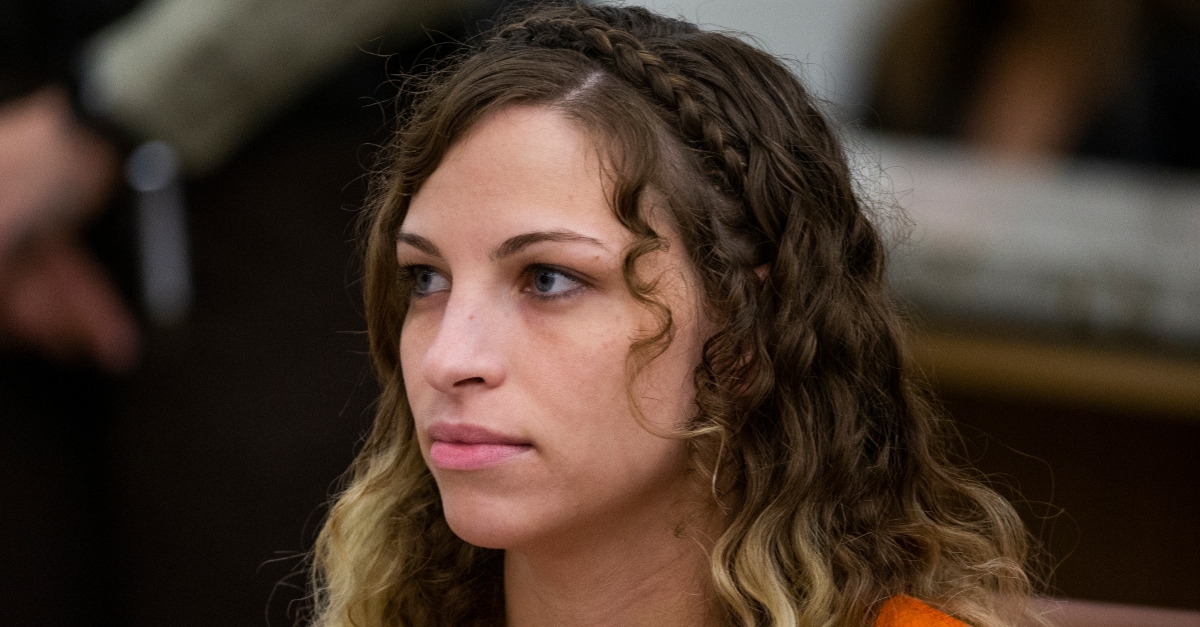Brittany Zamora has become a name synonymous with scandal and controversy in the realm of education. The former middle school teacher from Arizona captured headlines across the country after her shocking arrest for engaging in sexual activities with a student. This article aims to delve deep into her story, providing insights into her background, the events that led to her arrest, and the implications of her actions on the education system.
In this comprehensive exploration, we will examine the details of Brittany Zamora's case, including biographical information, the legal repercussions she faced, and the broader context of teacher-student relationships. The aim is to provide not only a narrative of events but also a critical analysis of how such incidents affect students and educational institutions.
Furthermore, we will address the psychological and societal factors that may contribute to such behaviors, ensuring a well-rounded understanding of this complex issue. By the end of this article, readers will gain clarity on Brittany Zamora’s story and its relevance in today's society.
Table of Contents
- Biography of Brittany Zamora
- Background and Early Life
- Details of the Case
- Legal Consequences
- Psychological Aspects of Teacher-Student Relationships
- Societal Implications of the Case
- Public Reaction to the Case
- Conclusion
Biography of Brittany Zamora
Brittany Zamora was born on June 27, 1988, in Arizona, USA. She graduated from high school in 2006 and later pursued a degree in education. After completing her studies, she began her career as a teacher in the Goodyear area, where she was known for her enthusiasm and dedication to her students.
| Personal Information | Details |
|---|---|
| Name | Brittany Zamora |
| Date of Birth | June 27, 1988 |
| Occupation | Former Middle School Teacher |
| Location | Goodyear, Arizona |
Background and Early Life
Brittany Zamora grew up in a seemingly normal environment, where she was encouraged to pursue her dreams and ambitions. Her passion for teaching emerged early on, leading her to become a dedicated educator. However, her life took a drastic turn when she engaged in inappropriate conduct with a minor.
Details of the Case
In 2018, Zamora was arrested after allegations surfaced that she had engaged in sexual relations with a 13-year-old student. The details of the case revealed that the encounters occurred multiple times, both on school grounds and at her home. The situation escalated when the student confided in a friend, leading to an investigation by the authorities.
Upon her arrest, Brittany Zamora faced several charges, including sexual conduct with a minor, which is considered a serious offense in Arizona. The case garnered widespread media attention, raising questions about the safety and integrity of educational environments.
Evidence and Investigation
The investigation into Zamora's actions included text messages and explicit communications between her and the student, providing clear evidence of the misconduct. Authorities were able to confirm multiple instances of sexual activity, leading to her eventual conviction.
Legal Consequences
Brittany Zamora was ultimately sentenced to 20 years in prison after pleading guilty to charges of sexual conduct with a minor. Her case serves as a cautionary tale for educators and institutions alike, highlighting the importance of maintaining professional boundaries.
Impact on Professional Standards
The repercussions of Zamora's actions extend beyond her personal life, affecting the standards of teacher conduct across the nation. Educational institutions have since increased their focus on training and policies aimed at preventing such incidents from occurring in the future.
Psychological Aspects of Teacher-Student Relationships
The dynamics of teacher-student relationships can be complex and multifaceted. Factors such as power imbalances, emotional vulnerabilities, and the desire for validation can contribute to inappropriate behaviors. In Zamora's case, it raises essential questions about the psychological motivations behind her actions.
Understanding the Mindset
Experts suggest that individuals who engage in such conduct often struggle with personal issues, including a need for attention or unresolved emotional conflicts. Understanding these psychological aspects is crucial in preventing similar situations in the future.
Societal Implications of the Case
The case of Brittany Zamora has broader societal implications, particularly regarding the perception of educators and the trust placed in them by parents and communities. It highlights the need for vigilance in educational settings and the importance of fostering open communication between students and their guardians.
Re-evaluating Trust in Education
As a result of such incidents, there is a growing concern about the trustworthiness of educators, leading to calls for stricter background checks and oversight within schools. This case serves as a stark reminder of the potential dangers that can arise in educational environments.
Public Reaction to the Case
The public reaction to Brittany Zamora's case was swift and polarized. Many expressed outrage at her actions, viewing them as a betrayal of the trust placed in educators. Others raised concerns about the treatment of young victims and the need for comprehensive support systems for students affected by such incidents.
Media Coverage
Media coverage of the case was extensive, with numerous outlets reporting on the details and implications. This coverage played a significant role in shaping public perception and awareness of the issues surrounding teacher-student relationships.
Conclusion
In summary, the case of Brittany Zamora serves as a poignant reminder of the complexities surrounding teacher-student relationships and the dire consequences of crossing professional boundaries. It underscores the need for continued vigilance and education around appropriate conduct in educational settings.
As we reflect on this case, it is essential to advocate for stronger safeguards for students and maintain open dialogues about the importance of trust and safety in schools. We encourage readers to share their thoughts and experiences in the comments section below, engage in discussions about this critical issue, and explore further articles on related topics.
Call to Action
If you found this article informative, consider sharing it with others who may benefit from understanding the complexities of teacher-student relationships. Your engagement helps raise awareness of these important issues.
Article Recommendations


